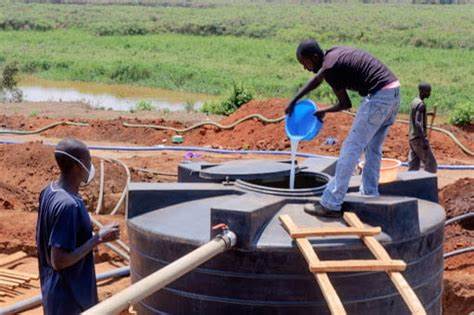
Decentralized Water Treatment in Developing Nations: Bridging the Gap for Safe Drinking Water
Introduction
Water treatment in developing nations is a critical issue that focuses on providing safe drinking water. Understanding the relevance and importance of decentralized water treatment in improving the lives of people in remote communities is essential in the face of growing global water challenges.
Historical Background
Decentralized water treatment in developing nations has a long history dating back several decades. It emerged as a response to the lack of centralized water treatment infrastructure in these areas. The development of this approach has been shaped by key milestones and events, leading to notable successes and failures.
Key Concepts and Definitions
Decentralized water treatment involves implementing water treatment technologies and approaches on a smaller, localized scale. Developing nations face unique water challenges due to limited resources and infrastructure, which necessitate decentralized solutions. Terms such as point-of-use treatment and community-based water treatment are commonly used to describe specific aspects of decentralized water treatment in developing nations.
Main Discussion Points
The importance of decentralized water treatment in providing access to safe drinking water cannot be overstated. Many developing nations lack centralized water treatment infrastructure, making it difficult for remote communities to access safe drinking water. Decentralized water treatment bridges this gap by implementing localized systems that ensure the availability of safe water. This approach not only improves health outcomes but also brings social benefits to these communities.
Various decentralized water treatment technologies and approaches exist to address different water treatment needs. Filtration, disinfection, and membrane systems are some of the commonly employed technologies. Each technology has its advantages and limitations, and successful implementation examples can be found in various developing nations.
Community involvement and capacity building play a crucial role in the success of decentralized water treatment projects. Engaging the local community in decision-making processes and ensuring their active participation is important. Capacity building and training programs are necessary to ensure the sustainability of decentralized water treatment systems. Community-led initiatives have shown significant impact in improving access to safe water.
Case Studies or Examples
Real-world examples and case studies provide valuable insights into successful decentralized water treatment projects in developing nations. These examples highlight the challenges faced and lessons learned, shedding light on the impact of decentralized water treatment on the lives of the communities involved.
Current Trends or Developments
Recent trends in decentralized water treatment in developing nations include advancements in technology and innovation. New technological advancements have made decentralized water treatment more effective and scalable. Research findings related to the effectiveness and scalability of decentralized water treatment systems contribute to the continuous improvement of this approach.
Challenges or Controversies
Implementing decentralized water treatment in developing nations faces numerous challenges and barriers. Limited resources, lack of infrastructure, and differing viewpoints create controversies surrounding this approach. However, potential solutions and strategies can be explored to overcome these challenges and ensure the success of decentralized water treatment projects.
Future Outlook
The future implications and potential impact of decentralized water treatment in developing nations are promising. Emerging trends and technologies are expected to shape the future of decentralized water treatment, contributing to improved access to safe drinking water. Continued research and investment in this area are crucial to address the water challenges faced by developing nations.
Conclusion
Decentralized water treatment in developing nations is a vital approach to address the water challenges faced by remote communities. It provides access to safe drinking water, improves health outcomes, and brings social benefits. By emphasizing the significance of decentralized water treatment, further research and action can be encouraged to ensure a better future for developing nations.